An encounter with Sandeep Ray

On a fine Monday morning, Sandeep joined me virtually on Zoom all the way from Malaysia to talk about his novel, A Flutter in the Colony (Penguin Random House, 2022).
Sandeep Ray, an established filmmaker and historian, made his debut as an author with this thrilling historical fiction that transports us to pre-partition Bengal and the Malaya of the 50s. Currently in Malaysia, he is in the process of settling down to teach as a professor there. Before I could get started with the interview, the author surprisingly had a question for me.
"How did a copy of this book reach Dhaka, Bangladesh?"
In reply, I said that his book, which vividly brings the pre-partition era Calcutta to life, interested me a great deal as a Bengali and thought that this was a book that Bengali readers would enjoy greatly. I was surprised that more Bangladeshi readers hadn't picked it up yet, I told him, so I was just trying to get more Bangladeshis to read it.
And with that we began our conversation.
Tell us a little bit about the book and the world you've created.
SR: This book takes place in 1940s Bengal. And when I say Bengal, I mean the undivided Bengal. Also during the 1950s Malaya—not Malaysia, which is what the country came to be known as eventually—but in 1957, when the country gained independence, it was still called Malaya.
The protagonist of the book goes through the 1940s, goes through all the trauma that South Asians are very familiar with, associated with independence, Partition, and events that are beyond his control. Regardless, he gets a job as a clerk at a plantation in Malaya. It was not uncommon, for Bengalis especially, to go and work at a clerical level in Malaya in those days. But his past of being an activist of the Freedom movement catches up to him because he sees similarities in the new society he has come to and struggles to separate his professional and personal life from the political life even though it's not his own country.
On top of that, he lost a very good friend, he lost his own wife, and married his late wife's younger sister. However, Maloti, is a strong force in his life who pushes him to realise his full potential; she sees him as a more complex person than as someone who'd just be happy working as a clerk, and finally get that medical degree that he couldn't finish because of the disasters that unfolded in Bengal.
You've mentioned previously how you share some of your earlier experiences with the character Maloti. Tell us a little bit about them and how that shaped the character we know as Maloti.
SR: I remember what (interview) you're referring to. To be honest, I don't think that was a good piece of writing on my part. I thought about it later and found it a little shallow *laughs*. But to go along those lines, I experienced in my own life a certain amount of separation from my family. Because I was born in Malaysia, and I was sent back to Kolkata to study when I was very young. My parents actually stayed back here; they weren't from Malaysia originally.
I found myself in a very new environment. So, you could say that I could relate to it in some ways and look out for things that happened to people who leave their homes and are put somewhere else. I'm aware of the insecurities and the adjustments one has to make because of that. So, that's about it. I don't think there's a deeper connection there.
You've talked in interviews about how your earlier experiences shaped this book. Tell us a little bit about your inspiration behind this book.
SR: Sure. So, the book didn't come out of nowhere. Books like this always come out of things that you've learnt and listened to. When I was younger, I wasn't very interested in these sorts of topics—movements, relocation, and cultural conflicts. I grew this interest later in life when I realised that my father, in 1951, had come from Kolkata to a country that was not yet independent. I thought it was incredible how he had done that in the 1950s. I mean, nowadays, immigration or emigration, whichever way you look at it from, is easier and different. But it's almost expected. During the 1950s, it must have been very different and strange. So, he told me a lot of stories about his life there, especially the initial stages he went through. And he moved to a small town as well. We were born in that town much later. And our phone number was 245. That's it: 2-4-5. Even during the time I grew up, the town was very small. So, I was able to kind of understand, I think, what the 1950s might have felt like even though it was much before my time. It was still a small world. And then in the 1980s, a lot of the Southeast Asians economies exploded and became massive. Everything changed after that. That's one part of it.
There were things about it that intrigued me a lot. Malaya was not independent. There was a struggle put up by the communists. In South Asia, we are used to having communist factions in our political parties within a scope of discussion of politics. But in this part of the world—in Malaya and Singapore—at that time and definitely now, it's really looked upon as a terrible thing. People are nervous even talking about it. And even if it does come up in books or in films, it's very black and white. And you know what's right and wrong. But of course, history is much more complex. I'm not advocating for change of systems or anything like that; I'm saying it's been seven decades now. Things have completely changed. Why not talk about it with some sincerity? Why not get a realistic view of what the 1950s were like? What did the communists want? Where did they succeed and where did they fail—and not sort of treat it as an untouchable topic. That doesn't make any sense. I think we should revisit that past. That was part of the inspiration for the book—the 'Malaysia' section of the book.
The 'India' part of the story comes from our family. The Partition, and you know, my grandfather's father came over from Bangladesh. Our ancestral home was in a place that's still there, called Sreepur. He had built a school there in 1916 after he had come to Kolkata and had some means to build it. It's called Sharat Ray Chowdhury High-School.
It was first under British India, then it was under East Pakistan and now it's Bangladesh. It went through three nations. Then in 2016, the principals of that school which still exists, called up my mother's side of the family and said that they are celebrating the centenary of the school and asked her to be the guest of honour since her grandfather's great-grandfather founded the school. I couldn't go but my uncles did. And it was incredibly moving for them. So, that history is there.
Some of the things in the book like the young man that meets this beautiful woman and sings at the school function. This is exactly what happened to my great uncle. He was sent for the prize distribution ceremony and saw this "graamer meye" and said "Na ami okei biye korbo".
I have lifted from these stories. I've stolen from these stories. But you know, I've remade the characters so they don't directly relate to anyone's biography. But I cannot deny that a lot of the anecdotes, events and arc of the story come from certain family experiences. But the larger tragedy of the friend dying in the riot— that kind of loss— that stuff is made up and fictional. The foundation of the story of the big house in Calcutta, the village on the other side and coming over, and then Partition—things like that come from family experiences.
I felt that I was uniquely positioned to write because of these two experiences of my father coming to Malaysia, and my mother's side of the family having that past. I was uniquely positioned to write this story about this journey from South to South-East Asia. Because it could be a whole library of books about experiences of the Indian diaspora in the West. But we don't write so much about what happened right next door and a lot happened.
And even in the larger South Asian literary circles, we don't get—at least in the English language—Banglay onek likha hoy—but in the English language, stories of Partition on our side, it's not something that comes up a lot. We talk about Partition in the West—you know, West India and West Pakistan, that side. So that too is somewhat underrepresented in the Partition Literature.
One of the primary characters in the story is referred to as "young-man" throughout the book. Many readers at the beginning get confused about why you don't give him a name. But we do realise the reason for that in the end. What was the motive behind that intriguing choice?
I don't know. People ask me this, but I don't have the whole answer. I think I tried a couple of names and I didn't like them. So, I left it blank thinking that the right name will come to me at some point. But it never did. Somewhere someone in the story refers to him as the young man and I thought that let's leave it as that—young man. That's really it. It wasn't a complex stylistic choice.
I am always curious about how long an author has worked on their book. One of your films took 17 years to complete and that's a really long time. It seems you put a lot of time into your craft. How long have you been working on your debut novel and when did you actually sit down to write this book?
I actually had a draft of the book in 2011. I started writing it at some point in 2010, I think. Now, it took roughly another 8 years after that for the final version to come out. But it doesn't mean I was working on it continuously. I sort of had a draft and I put it away. Then I did other things like getting a PhD. When that was done, I thought, 'let's go back to the book'. So then I put another focused year on it and some things changed.
The book was initially chronological and I changed it to being back and forth. I made some structural and some narrative changes. I think it was good that I waited a little bit because I matured more as a person and as a writer. And I learnt more because I studied very seriously— "seriously" sounds like it's not a good word. I mean I studied history in a focused way, especially Malaya's history and that era. So, that's why it took so long, and mostly put it away completely for several years.
The story is complex in a sense that incorporates a lot of historical elements like the Bengal famine, Independence of India, British's rule over Asia, but also explores themes like identity, racial disputes, and more. You've managed to balance it out beautifully with your fluid writing. And you have also mentioned that you wanted to embark on a journey of exploring your past with this book. I am curious, did all of this make the writing process exhausting for you? Or was it an invigorating experience?
No, it was never exhausting, I always enjoyed it. But what I was careful of was that it couldn't be a history book. It had to be a novel and a story that someone would want to read, and read the next page of even if they didn't know any of the history. They should want to read that book because of the characters and what happens to them. And you have to blend the two in a way that no historian can say, "Oh, you've misrepresented something". Now, I was very careful about that because people who publish historical fiction don't do the historical research and that really wrangles. So, I was certainly careful about things like that. And my greatest fear is that some historian would say, "Aha, you made a mistake here! And I caught you on this one". So, it has to be a plausible fictional story within a real historical setting. But there are interesting things that come up when you try to be too concerned about details.
For example, if there's a road and I say, "What was the road called in 1945?" Because names change. And as a historian, I'll find aerial shots of Kolkata from a British archival map. I'll then zoom in and say, "Aha, this was a different name of the road then. I caught it". And I'll put that name of the road down thinking my research has paid off. But you also realise no one calls a road by their new name for years after the name changes. Right? So, if the road in front of your house changes name, and when you give directions, you're not going to use the new one but the old one. That kind of detail can backfire. You've to be culturally aware of how these facts unfold in a realistic way.
You've been a filmmaker for a really long time. But then you turned to academia and pursued a Masters and PhD in History. So, I assume a lot of the writing practice that you got was academic. But when did you first fall in love with fiction writing?
I mean, I have always liked reading. You know, I didn't write fiction. Although I'm still from an era where we used to write long letters—to friends, people who were more than friends. We have the habit of really capturing our thoughts and expressing ourselves in the words we want to. Even when I was a child and moved to India, I had to write to my parents. Even when you were overseas, telephone calls were so expensive when I went to America to study. So, sometimes you write letters. So, I had that habit.
And I think we have that habit of writing and wanting our letters to be readable, funny and moving. So, I had that. But I never wrote fiction. Like, I never published short stories in magazines or anything like that, ever. I always thought I would one day. But this is the first time I actually wrote anything fiction-wise.
Final question. You've created such compelling characters in your book. And you also have a successful filmmaking career. And I am interested in picking your brain: I am sure you draw your expertise from both filmmaking and fiction writing. What do you think makes a good story and how do you create one?
I think we have mistakenly blurred the lines between nonfiction and fiction. We separate the categories of nonfiction and fiction, right? But actually, they are a lot more intertwined than we realise they are. So, a good story—at least the kind of story I like—always has its foundation in a real and plausible environment. That comes from non-fiction. And then, you can work with people inside of that world and make a story that has a plot that's more readable. I mean these extraordinary things don't happen in the lives of most people. You have to kind of manufacture that 'something', so that it becomes a page turner. That's what I think it really is—to foundationally have a real world and then throw people into it and see what sort of fascinating things could happen to their lives.
Also, it's about writing dialogues. If you work in non-fiction or in documentary, you get very used to how people speak naturally. Because people don't answer in eloquent full sentences. People say monosyllabic things, they say curt things, they speak over each other—that sort of thing. I think you get a good ear for that when you film a lot of real situations. So, when you write dialogues, I think you might be in a better position to imagine how people would actually interact rather than these scripted ways with lines that push the plot forward but feel a little fake.
Usraat Fahmidah is a freelance journalist and writer. You can reach her on twitter @usraatfahmidah.

 For all latest news, follow The Daily Star's Google News channel.
For all latest news, follow The Daily Star's Google News channel. 

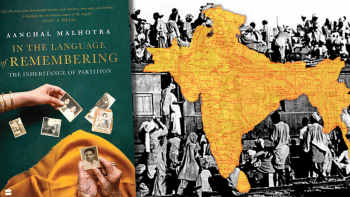

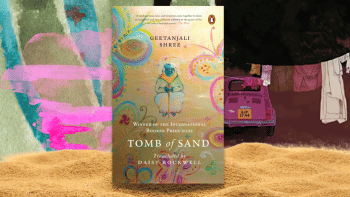



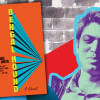
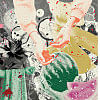
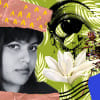
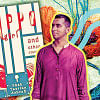
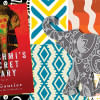


Comments